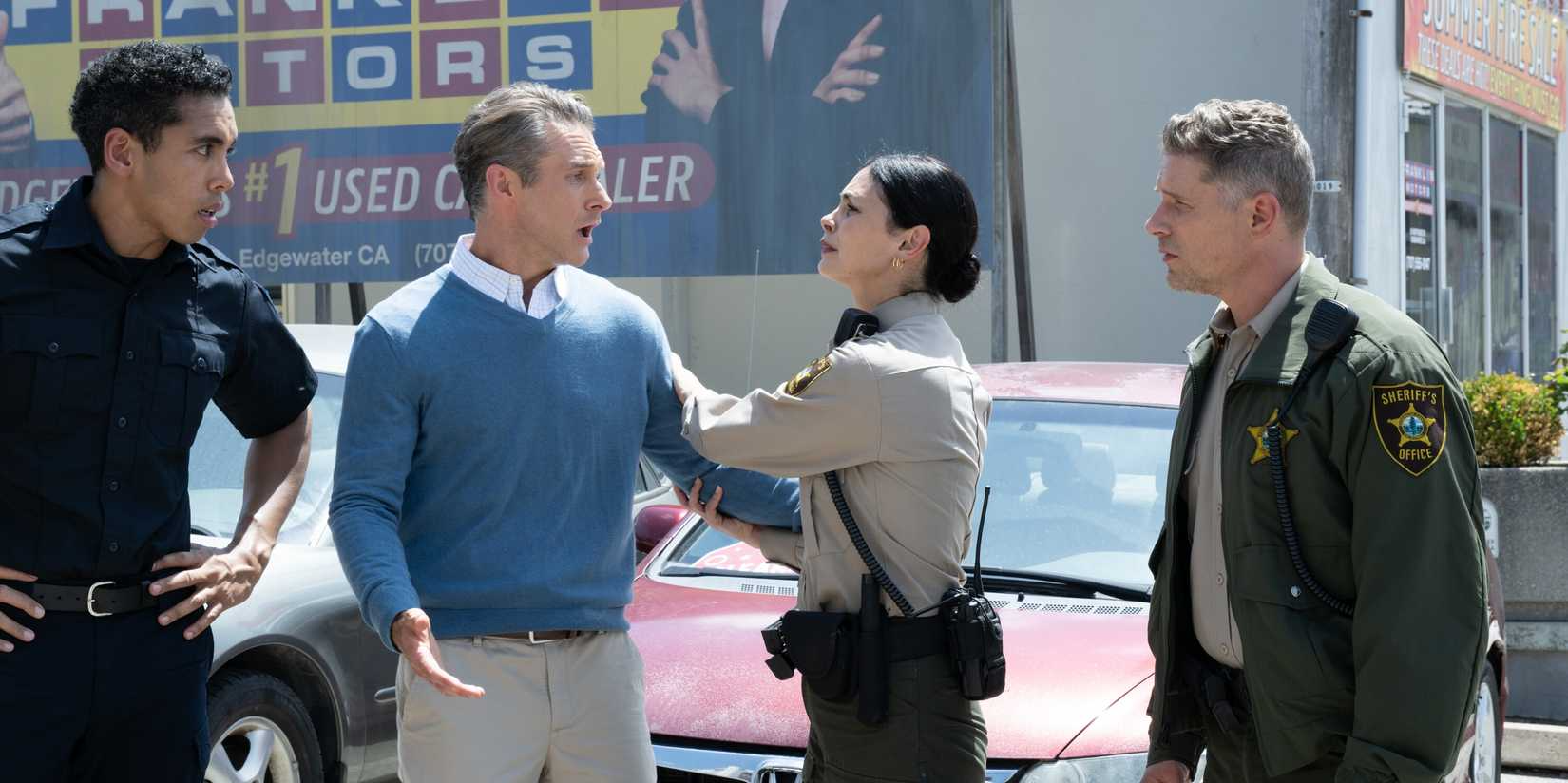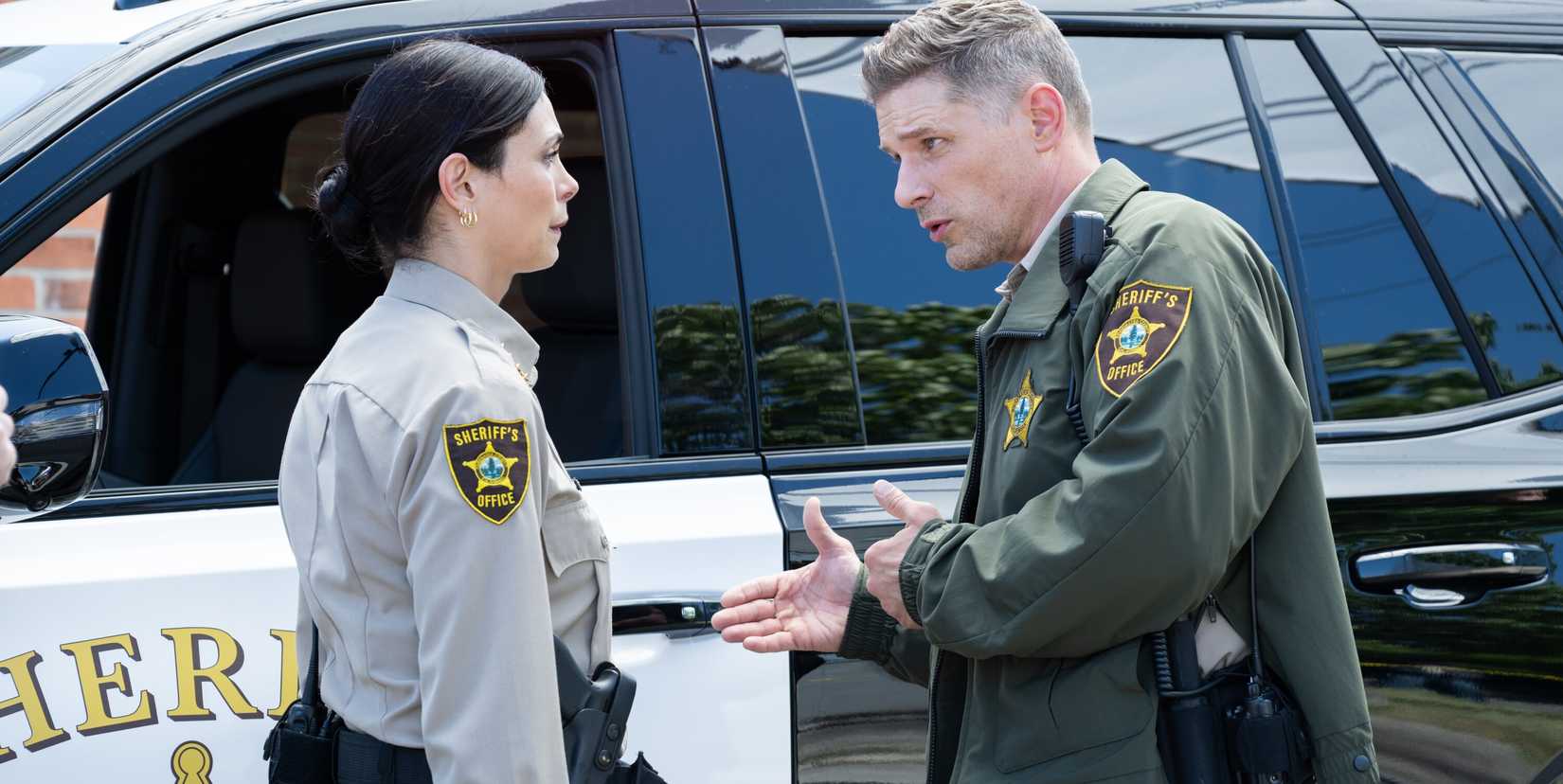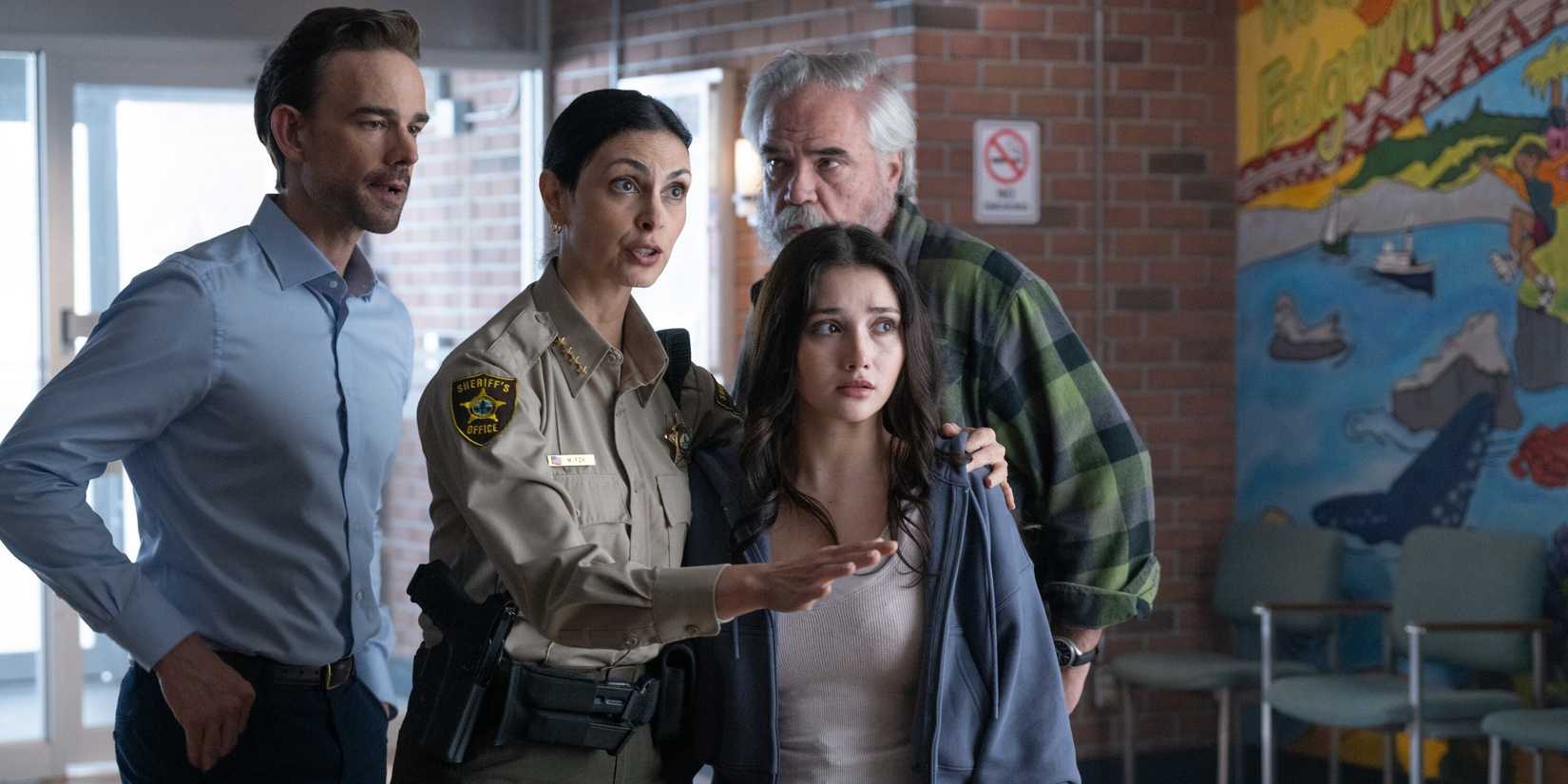
Similar to how Fire Country blends high-octane firefighting scenarios with the inner turmoil of the Leone family, Mickey is torn between her responsibilities as a cop chasing down murderers and kidnappers and being the mother to a recovering addict, Skye (Amanda Arcuri). Keeping Skye sober is complicated by Mickey’s strained relationship with her dad and her straight-up discordant co-parenting arrangement with her ex-husband, Travis (Christopher Gorham). Fire Country fans are pretty well acquainted with Mickey after two separate appearances on the flagship show, but Sheriff Country still has the task of making them want to know more and recruit completely new fans by showcasing Mickey on her own terms.
It’s a tough task that Sheriff Country doesn’t always succeed at, but there’s hope it can be more effective with some more time on the air.
‘Sheriff Country’ Is Establishing a Different Side of Edgewater
Sheriff Country sets itself apart by going out into the community. We’re meeting the people who make this town what it is in a deeper way than watching their houses and businesses burn down. The cases that Mickey and her team have to solve are set up by the local bankers, car dealership owners, former homecoming queens, and everything in between. That inside look at the town helps separate Sheriff from the flagship in a more meaningful way than just “these are the police first responders and the other show is about the firefighter first responders.” It gives Sheriff Country a different point of view, which justifies having an entirely separate show within the universe. The first four episodes screened for critics showcase a great array of the people who live in Edgewater. There are small business owners. There are also the weed trimmers and farmers that live by their own code of law in the mountains just outside of town. Mickey’s experience of growing up in the town and knowing almost everyone in it gives her a unique insight to the cases that come across her desk and makes the case for why she’s the best person for the sheriff job, even if it takes her a minute to realize that. If you’re invested in Mickey and her success, then you’re also invested in Edgewater, and vice versa. Sheriff Country’s most effective trait is how it creates that mutual buy-in to get fans, both of the flagship and people coming into the universe through this cop drama, excited about the drama unfolding ahead.
Wes is the guy the audience will want to get a beer with, and soon establishes himself as the potential fan-favorite character. Sheriff Country showcases through Wes and the mountain dealers doesn’t seem afraid of the gray area when it comes to that community.
That’s unusual for a network police procedural, and also refreshing. And it is intriguing to get to know these different shades of the community through how they interact with Mickey, her team, and the rest of the Fox family.
‘Sheriff Country’ Has To Balance New Cases and Serialized Stories
Sheriff Country does a decent job of choosing crimes that either up the excitement level or explore a new relationship or dynamic between the officers themselves.
The first episode also launches a multi-episode serialized conundrum for Mickey that exacerbates the push and pull between her professional and personal priorities.
The case gives viewers another hook to invest in Mickey and her journey to officially being elected sheriff, and Sheriff Country is effective in adding layers to it to put Mickey in an increasingly complicated position. Being able to balance a multi-episode case arc without jeopardizing a reliable procedural structure is extremely difficult, and it is impressive how well Sheriff Country pulls it off in the early episodes. Even when the case is solved, the repercussions of Mickey’s actions during the investigation set up the next phase of a season-long battle to prove to her town that she can do this job.
Her current relationships evolve and strengthen while new enemies emerge, and that is complicated storytelling to get right.
Sheriff Country is very effective with the hybrid crime model so that fans who love the wrap-up guarantee of a procedural get their itch scratched, while viewers who love exploring a longer arc mystery won’t get bored. That balance is the show’s biggest asset outside of Edgewater’s colorful community of characters.
Consistency Is Key, and ‘Sheriff Country’ Hasn’t Found It Yet
Fire Country knowledge who will feel like Mickey’s backstory is being retread in a melodramatic fashion. That’s to be expected with a pilot that has to play for old and new fans alike. There’s no way to clue in new fans without repeating previous information, but that’s far from the show’s greatest sin.
Fire Country gave up the ghost of being a realistic firefighting drama a while ago (whether they want to admit it or not), but Sheriff Country is still struggling with whether it wants by-the-book cop representation or to bend the rules for the sake of drama. Mickey refuses to pull over a suspect in a bank robbery without a judge-signed search warrant for the suspicious vehicle because she knows any evidence she finds in an unsanctioned stop will not make it in front of a jury. However, she has no qualms breaking into the station’s evidence locker or questioning a witness out of uniform when she starts her own rogue investigation in the multi-episode case. Crime dramas bend the rule of law all the time for the convenience of the story, but you can’t have Mickey be a stickler for the rules in one episode and then appear to have lost all knowledge of evidence protocol in the next.
Sheriff Country needs to figure itself out, and quickly. It absolutely has the potential to do so, but it needs to happen sooner rather than later because viewers aren’t going to extend patience when there’s so much other content to watch.


